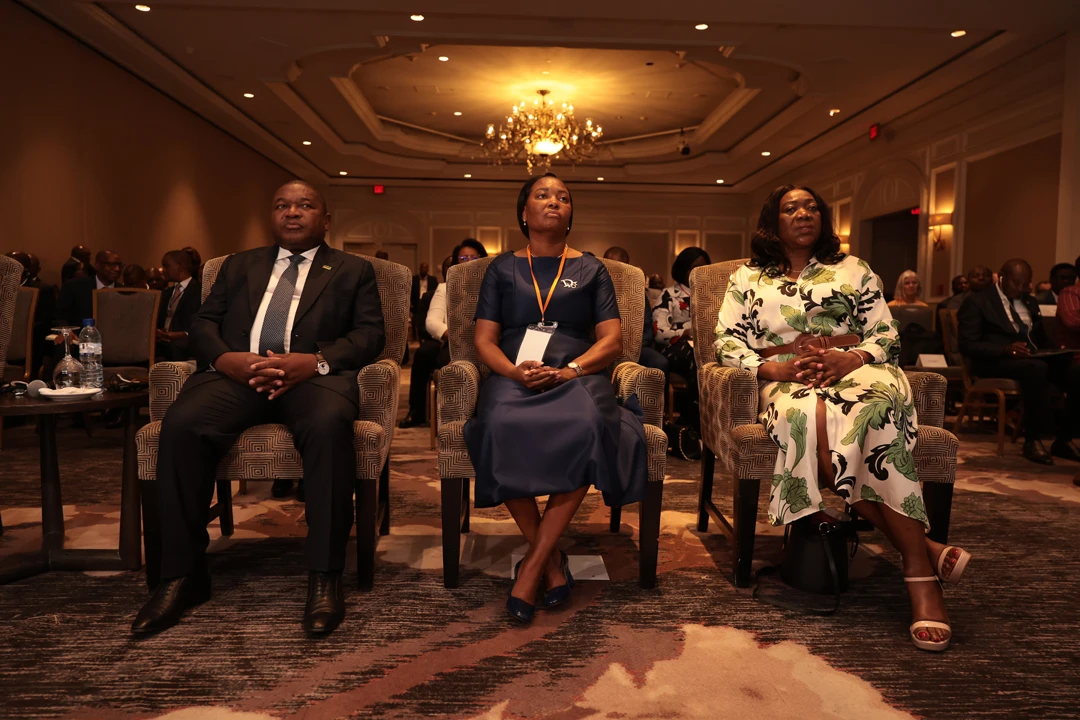From April 16-17, 2024 in Washington, DC, the ICCF Group, together with the Government of Mozambique, Wildlife Conservation Society (WCS), and Rainforest Trust, hosted an international conference on the Miombo Forest Initiative.
Chaired by His Excellency Filipe Jacinto Nyusi, President of the Republic of Mozambique.
The Miombo woodlands cover more than 1 million square miles across southern Africa and provide numerous goods and services that sustain the livelihoods for and feed more than 300 million inhabitants. Including tropical and subtropical grasslands, shrubland, and savannas, the Miombo woodlands comprise the largest ecosystem of dry tropical forests in the world and are responsible for sustaining the Greater Zambezi, one of the most important transborder hydrographic basins.
The large variety of species found in the woodlands provide diversified ecosystems services and products, which are extremely important for subsistence and income generation for local populations. However, a growing population and resulting increased demand for agricultural land, combined with unsustainable use and overharvesting of natural resources in parts of the Miombo woodlands and impacts of a changing climate, pose a serious threat to the products and services of the woodlands, and to the livelihoods depending on them.
The Republic of Mozambique has an unwavering commitment to the achievement of sustainable development goals and is focused on the implementation of solutions to attain global targets on climate. Toward that end, Mozambique has brought together the Southern African Development Community (SADC) member states to promote a common approach for the "Sustainable and Integrated Management of the Miombo Woodlands and the Protection of the Greater Zambezi Basin." This "Miombo Initiative" was endorsed as the "Maputo Declaration on the Miombo Forest" in Maputo, Mozambique in August 2022 by the following eleven signatory countries: Angola, Botswana, Malawi, Mozambique, Democratic Republic of Congo, Republic of Congo, Namibia, South Africa, Tanzania, Zambia, and Zimbabwe. The Maputo Declaration on the Miombo Forest establishes priorities for the sustainable management and governance of the natural resources of the Miombo ecosystems.
About the Conference
The two-day conference was attended by Heads of State, parliamentarians, and government officials from signatory countries of the Maputo Declaration on the Miombo Forest as well as by representatives of the U.S. Government, international financial institutions, private-sector entities, international conservation agencies, philanthropists, and environmental experts.
The conference included Ministerial meetings with partners, panel discussions, and a high-level U.S. Congressional Member Dinner and aimed to advance the potential of the Miombo Forest in contributing to global efforts to achieve goals on biodiversity conservation, climate, and integrated sustainable development. The conference concluded with the government representatives expressing a verbal adoption of a commitment letter defining a vision for the implementation of the Miombo Initiative.
ICCF Chief Executive Officer, John Gantt, congratulated the member states of the Maputo Declaration on this ambitious initiative, spoke about its importance, and emphasized the need for collaborative strategies, innovative financing mechanisms, and a transparent governance system to implement the Maputo Declaration.
President Filipe Nyusi added, "we need to transform the Intentions of the Maputo Declaration into concrete and sustainable act s, towards achieving the goals of regional and global countries and the ambitious target of achieving the 2030 objectives of the United Nations global biodiversity framework."

 Regional Headquarters
Regional Headquarters